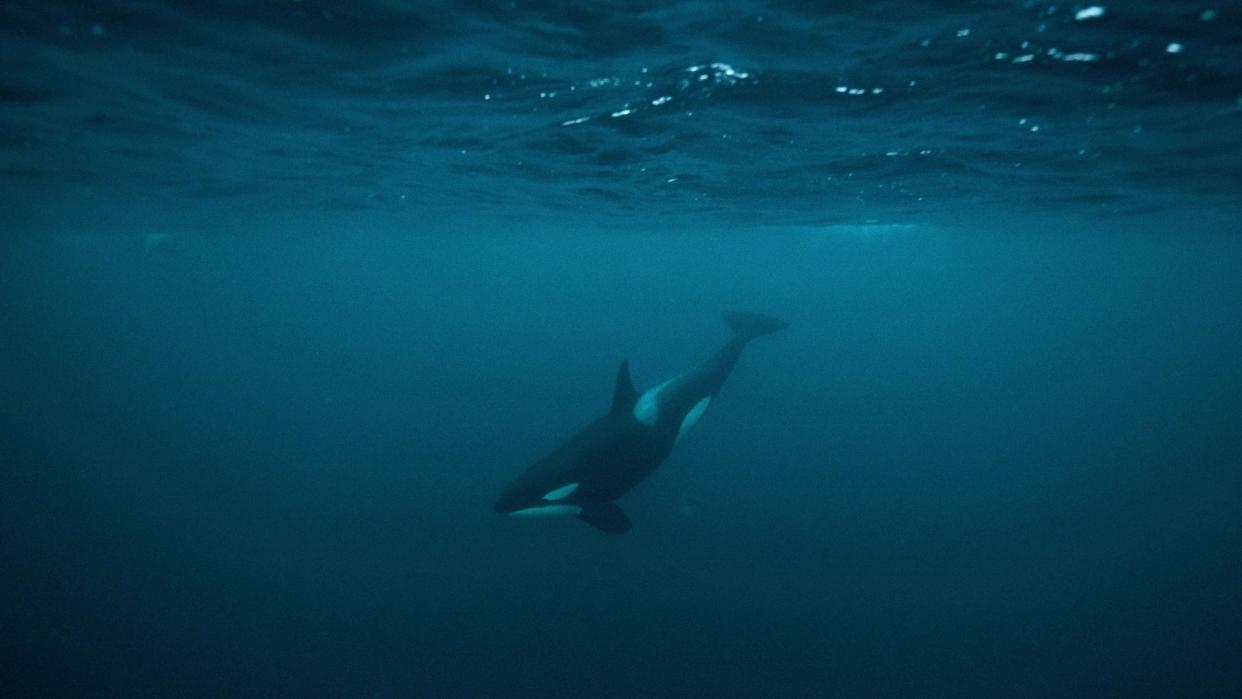Why scientists think orcas may be getting smarter

- Oops!Something went wrong.Please try again later.
The reason orcas have stayed at the top of the food chain in every ocean is simple, said Live Science: "They're really, really clever."
But changing ocean conditions and a growing human presence may be forcing the species (commonly known as killer whales) to adapt and innovate, and learn new tricks to survive.
"Sentient, matriarchal, tremendously successful as a species, their culture is much older than ours", said The Guardian's Philip Hoare. In light of recent confrontations between orcas and humans off the Iberian peninsula, perhaps now is the time to "readdress the power of these marine mammals on our imagination: on what these animals represent and what they are thinking when they interact with us".
How smart are orcas?
Orcas, or Orcinus orca, are highly social and "cognitively complex animals that engage in playful activities to bond with one another", said the Smithsonian Magazine.
A killer whale's brain can weigh as much as 15 pounds (6.8 kilograms), with some evidence to suggest that their IQ is equivalent to that of a 15- or 16-year-old human, according to Orca Torch.
They deploy a remarkable range of learned hunting strategies: beaching themselves to snatch seals from the shore in Argentina; creating waves in Antarctica to push seals off floating ice; and coordinating attacks to kill blue whales near western Australia.
They pass these behaviours on to their offspring – with evidence they go after certain prey to "maximise their energy intake or nutrition, or both", said Scientific American.
They have complicated social rituals, including elaborate greeting ceremonies, and seem to exhibit behaviour more commonly associated with primates, which mirrors human emotions such as friendship and grief.
Orcas "occasionally get caught up in fads – a temporary behaviour started by one or two individuals, adopted by others and then swiftly abandoned", said Patrick Pester in LiveScience: most famously in the 1980s when a population in the Pacific went through a phase of wearing salmon as hats.
What suggests they are getting smarter?
Recently, scientists have been fascinated by populations of orcas targeting and ramming small sailing boats off the Spanish coast. At least 20 Iberian orcas have adopted the behaviour, according to BBC News, which scientists believe they might have learned from their elders.
Using boat rudders as playthings is "novel behaviour", said the broadcaster, and it is "currently confined to this small, endangered Iberian population", but the young calves "do appear to be copying adult orcas".
A similar pattern of learned behaviour has been recorded on the other side of the world. A recent study published in the journal Marine Mammal Science examined why a small population of orcas in the Pacific Northwest have been intimidating and killing young porpoises for decades.
According to Smithsonian, the results point to "three plausible explanations for the bullying-like activity: social play; hunting practice; or 'mis-mothering' behaviour, in which the orca tries to care for the other animal".
Whatever the reason, "porpoise-harassing behaviour has been passed on through generations and across social groupings", concluded co-author Sarah Teman, a biologist at the University of California, Davis, School of Veterinary Medicine. "It's an amazing example of killer whale culture."
Several orca communities worldwide have also learned to poach fish caught for humans from the lines used by commercial fisheries.
Why might this be?
"Behavioural change can influence anatomical change in an animal or a population," said Josh McInnes, a marine ecologist at the University of British Columbia – but only over thousands of years of evolution.
It is therefore highly unlikely that orca brains have fundamentally changed over the course of a few decades, or even a century or two. Humans may, however, be playing an indirect role in making orcas "smarter", McInnes told LiveScience, primarily by changing ocean conditions.
Orca raids on longline and trawl fisheries show that they "innovate and learn new tricks in response to human presence in the sea". Human-caused climate change "may also force orcas to rely more heavily on one another for learning".
Some of their "seemingly new tricks" may actually be "age-old behaviours" only recently documented by humans. But orcas are "fast learners", which means they can teach each other some "terrifying tricks", and become "smarter" as a group.

